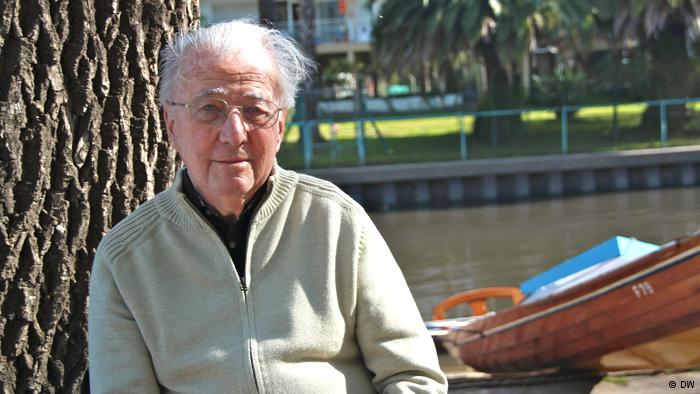Culture
Writers in exile Robert Schopflocher died
He was one of the last German-Jewish Exilschriftstellern and lived until recently in Argentina. Now Robert Schopflocher at the age of 92 years in Buenos Aires have died.

As Robert Schopflocher was 14 years old, he fled in 1937 with the parents from the Nazis in his home town of Fürth near Nuremberg. The goal was Argentina. There, he studied agronomy and worked as Manager of agricultural goods. He wrote several books on agricultural themes, including a Bestseller about chicken farming.
From science to fiction
His fiction vein, he discovered, as he had already mid-50 was, in the 1980s. At first he wrote short articles in magazines, later short stories, novels and plays. However, he wrote not in English, but in Spanish.
In the 1990s, he discovered the German language again. His works concerned themselves with flight, expulsion and exile, as well as all the side-effects of Migration: Arrival of the Strangers to the home, the living between two cultures. Even the Argentine military dictatorship (1976-1983) was the subject of his tales, finally, he was again witness to an inhuman regime.
Stories of persecution and escape
Watch Video
01:44
Robert Schopflocher reads the poem ‘Stempellied’
In his autobiography, “Far from where. My life between three worlds” (2010), he characterized his own life: to escape from the Nazis, the new home in Argentina, and the rise and Fall of the dictator Juan Perón. 2013 follows “The lost children”, a novel about the Disappeared during the military dictatorship.
His latest novel, “The plot to Lima” (2015), tells the story of the persecution of the Jews in Latin America of 17. Century: The girl Elvira must be with his family before the Inquisition to hide and flee through half the South American continent.
“The German voice of Argentina”
Robert Schopflocher was one of the 40,000 German-speaking Jews, from before the Terror of the third Reich to Argentina to have fled. “I came in not a concentration camp, was not starved, was not living in the shadow of the gas chamber and the crematorium,” he writes about his feelings after the run. “The collective consciousness makes me still does not let go.”
Schopflocher was known as “the German voice of Argentina” and was several times for his work is distinguished, among other things, in 2008 with the Jakob-Wassermann Literaturpreis for his hometown Fürth.
sw/rey (dpa/pearl.de)
